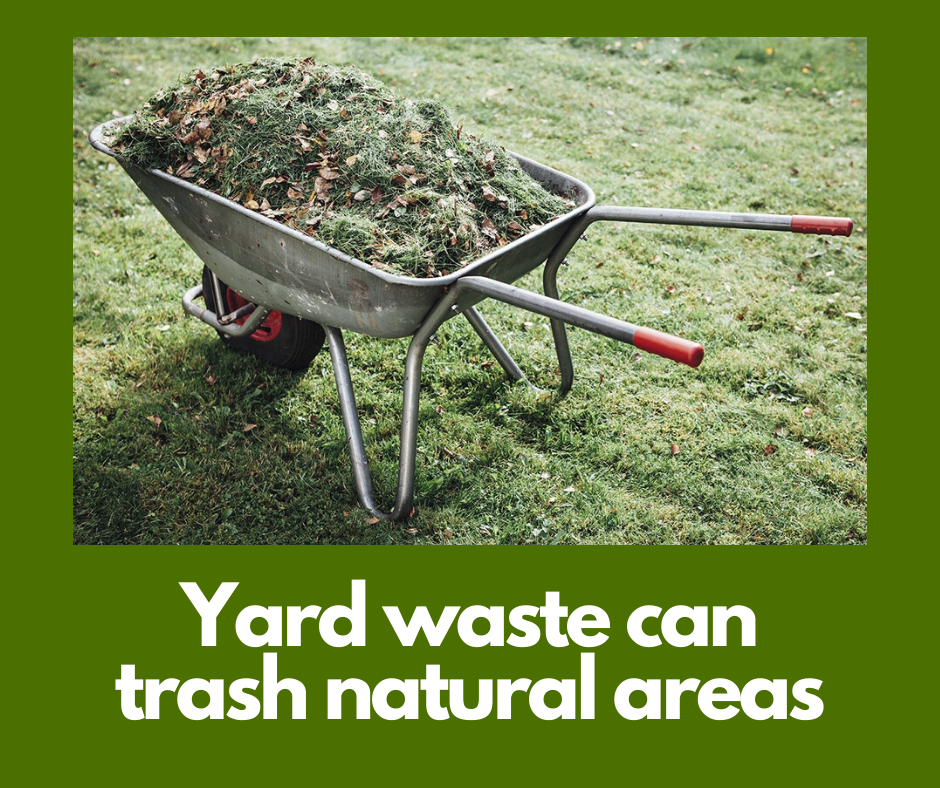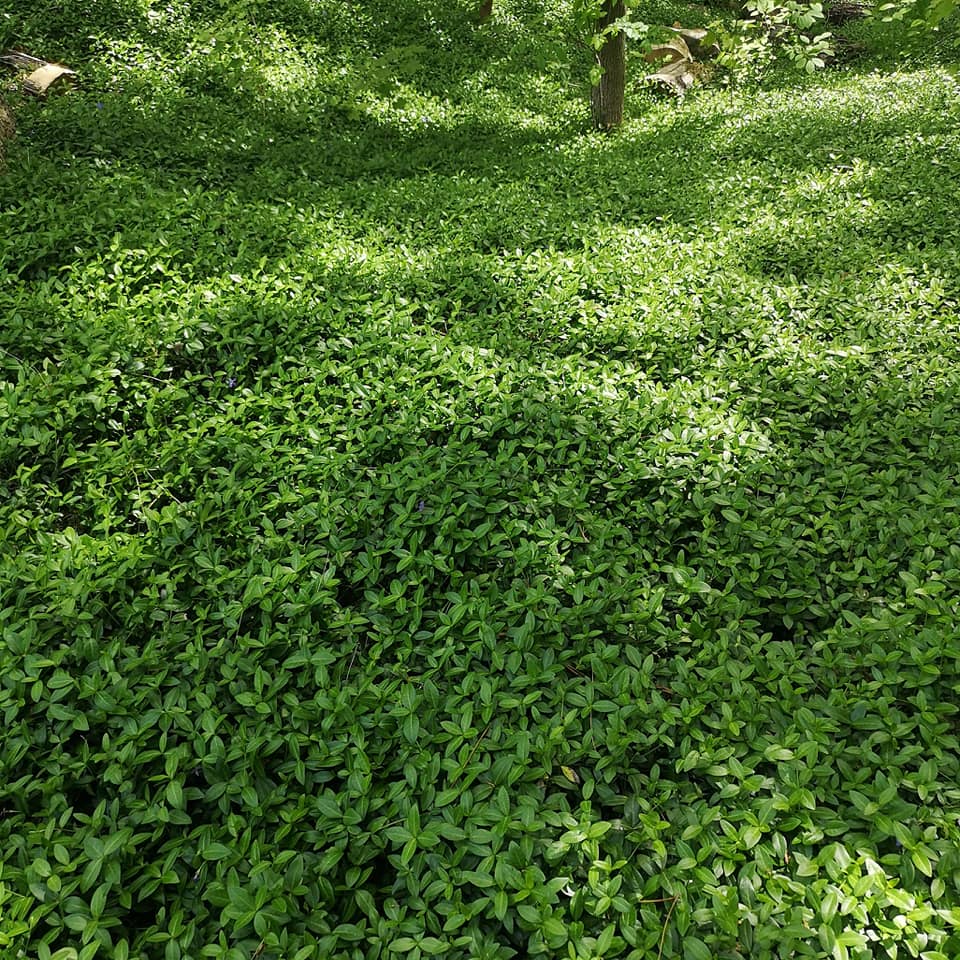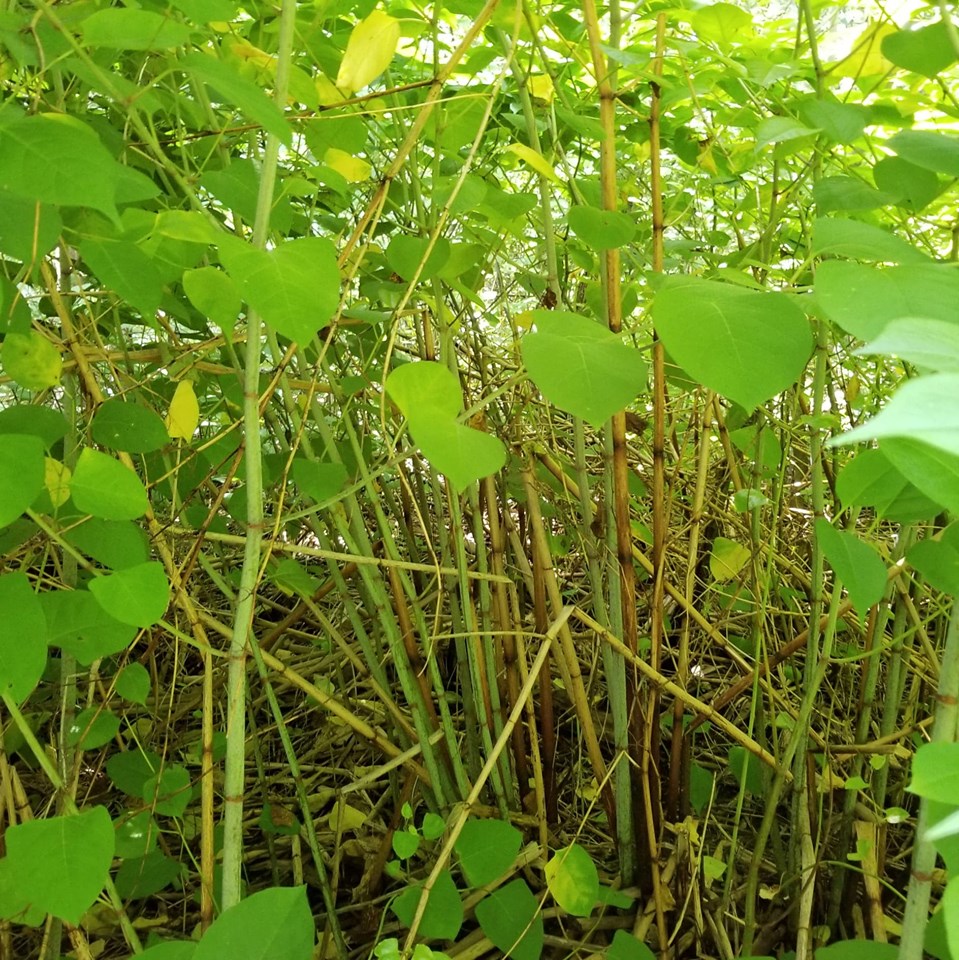
Many years ago, one of our volunteers lived near a small conservation area inside the City of Sault Ste. Marie. While playing there with her son, she noticed someone who lived next to the natural area push a wheelbarrow into a grove of trees on the site and dump a load of yard waste. As the years went on, our volunteer noticed that the natural area slowly became invaded by garden plants, which crowded out the native plants that would normally grow in a natural area in this part of Ontario.
We can’t stress enough that it is a really bad idea to dump garden waste in natural areas, including parks, conservation areas, and roadsides.
In cities, natural areas play an important role. Whether it’s a wetland, a meadow, a woodlot, or a pond, natural areas provide habitat for native birds and wildlife as well as opportunities for city dwellers to experience nature close to home. They also provide places to educate our kids about nature.
Too often, however, homeowners see natural areas as convenient places to dump lawn clippings, leaves, and unwanted garden plants. Here are several reasons why dumping yard waste in these areas is a bad idea:
- Polluting: If any of the material has been treated with any type of chemical and it ends up in a river, stream or other waterbody, the chemicals could be transported downstream and end up in our water supply.
- Displacing native species: Some garden plants are resourceful…if you toss a ditch lily or a pile of periwinkle in a natural area, there’s a good chance it will send runners into the soil, establish, and crowd out native species. And if the dumped material contains any seeds, those seeds may sprout and grow in the natural area. When a natural area loses native plants species, it may then lose native wildlife and pollinators as well.
- Smothering: By dumping a big pile of garden waste in a natural area, you can smother the native plants growing under the pile. And you never know… a rare native orchid or other rare plant could be growing there!
- Destabilizing: If the piles disrupt a delicate stream or riverbank ecosystem, erosion could result.
- Unsightly: Giant piles of decomposing yard waste are not attractive to look at and in the case of grass clippings, can smell pretty bad or even catch fire due to the heat from decomposition.
- Wasteful: Why not compost right in your own yard? Compost is garden gold! If you can’t afford a store-bought composter, you can always dig a hole in the corner of your yard and dump yard waste in that.
To learn more about composting, check out the Clean North composting page. You can also bag your yard waste for the city to collect or drop some types off at Lemieux Composting (rules here).
Please help us keep our local natural areas hospitable to native species. Thank you!






